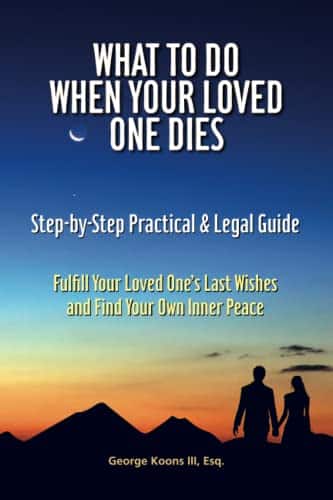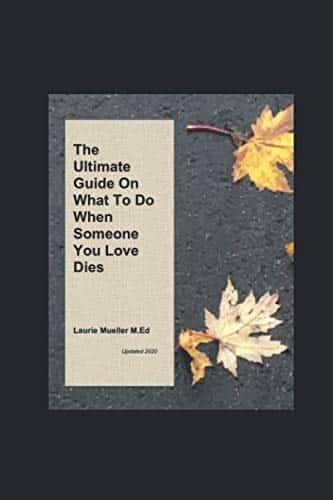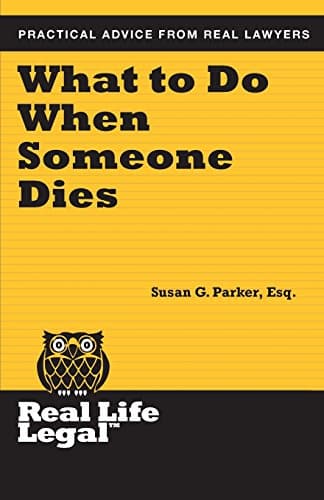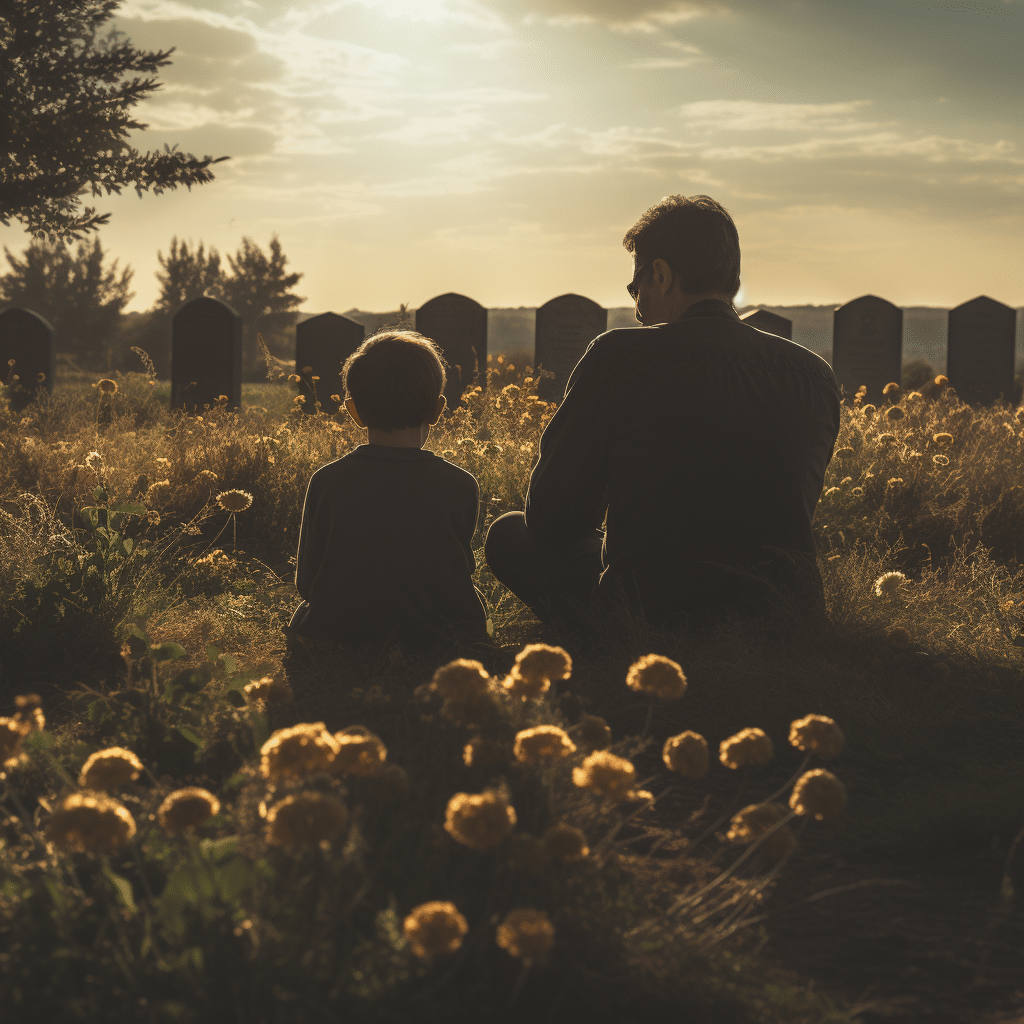Losing a parent is a pivotal moment that can shake the very foundations of our world. In that tender state of heartache, tasked with an avalanche of decisions, the question ‘what to do when a parent dies’ can feel insurmountable. For those whose children have been wrestling with the shadows of addiction, this loss can cut deeper, knowing the struggle their parent witnessed. As we embark on this journey through bereavement, let us weave through it with considerable grace and unending support, mindful that we’re not navigating these choppy waters alone.
Step 1: Address Immediate Concerns and Notify Loved Ones
When the unthinkable happens, and we’re faced with the reality of a parent’s passing, it’s like time stands still. Yet, amidst this emotional torrent, immediate concerns must still be addressed. First things first, obtain a legal pronouncement of death. If your loved one was a registered organ donor, time is of the essence to honor their life-giving commitment.
Once the formalities are officiated, it’s time to rally the troops. Lean on that ‘mom across america’ solidarity and reach out to family and friends. Notifying loved ones is more than a duty; it’s an invitation to share in grieving, to hold each other up in the shared fragility of the human experience. This outreach is a gentle reminder of the support systems we often forget that we have until we most need them.
What To Do When Your Loved One Dies Step by Step Practical & Legal Guide Fulfill Your Loved One’s Last Wishes and Find Your Own Inner Peace

$15.99
Losing a loved one is an emotionally overwhelming experience that comes with a heavy burden of responsibilities. “What To Do When Your Loved One Dies” is a comprehensive step-by-step guide designed to help you navigate both the practical and legal aspects of handling a loved one’s passing. This resource provides clear, compassionate advice on how to fulfill your loved one’s last wishes, ensuring their legacy is honored and their affairs are settled with respect and care. It breaks down complex processes into manageable tasks, allowing you to focus on grieving and finding your own path to inner peace.
Amidst the chaos of grief, it’s easy to feel lost and unsure about the legalities and procedures that follow a person’s death. This guide illuminates the critical steps such as registering the death, planning the funeral, and dealing with the estate through probate or other means. It explains your rights and obligations, outlines potential pitfalls, and offers practical tips for dealing with government agencies, banks, and legal professionals. In addition, it includes helpful checklists to ensure nothing is overlooked during this difficult time.
Beyond the practicalities, “What To Do When Your Loved One Dies” addresses the emotional journey of mourning. It acknowledges the importance of self-care and provides strategies for coping with loss and seeking support. The guide also encourages reflection on your loved one’s life and contributions, offering guidance on how to find solace in memories and create meaningful tributes. By following the compassionate insight provided, you’ll be equipped to handle the immediate aftermath of loss and start on the path towards healing and finding inner peace.
Step 2: Plan the Funeral and Memorial Services
The reality continues to set in, and it’s now time to honor and celebrate the life of your loved one. Planning a funeral or memorial service offers a meaningful way to say goodbye. Lean on those poignant memories, evoking that ‘mothers day 1995’ nostalgia, where communities banded together to uplift the spirits of those mourning.
In orchestrating the final send-off, consider your parent’s wishes. Were they inclined towards a solemn church service or perhaps preferred the idea of a lively celebration of their life? This step is your love letter to them—a nod to their legacy and the joy they sparked in the lives of others. It’s a delicate dance of respecting tradition and infusing personal touches that speak to their essence.

| Step | Action Item | Description | Resources or Contacts | Considerations for Teens |
|---|---|---|---|---|
| 1 | Acknowledge & Accept | Give yourself permission to feel a wide range of emotions. | Grief counselors, support groups. | Teens may need guidance to understand complex emotions. |
| 2 | Legal Logistics | Notify the necessary authorities and obtain the death certificate. | Funeral director, local government. | A trusted adult should help teens navigate these steps. |
| 3 | Funeral Arrangements | Plan and attend the funeral or memorial service. | Funeral home, religious leader. | Teens might want to contribute to the service by sharing memories. |
| 4 | Financial Affairs | Understand and organize the deceased parent’s finances and will. | Lawyer, financial advisor. | An adult should manage these details while explaining the process to teens. |
| 5 | Safety Net | Ensure continuity of care for the teenager, including living arrangements and daily needs. | Remaining parent, relatives, guardians. | Security in daily life is crucial for teens facing loss. |
| 6 | Emotional Support | Seek professional help if necessary, such as the adolescent trauma therapy program. | Therapists, school counselors. | Therapy tailored for teens can help address the unique challenges they face. |
| 7 | Memory Preservation | Create ways to remember and honor the deceased parent. | Memory books, tribute videos. | This gives structure to grief and can be a healing process for teens. |
| 8 | Adjustment Period | Navigate the changes in family dynamics and responsibilities. | Close family, mental health professionals. | Patience is vital, as teens will adapt at their own pace. |
| 9 | Support Networks | Connect with people who have gone through similar experiences. | Support groups, online forums. | This can alleviate feelings of isolation for teens. |
| 10 | Continuous Healing | Recognize that grief is an ongoing process, not a one-time event. | Long-term therapy, annual memorials. | Teens need reassurance that it’s normal for grief to ebb and flow. |
Step 3: Settle the Estate and Financial Matters
Taking on the arduous task of settling the estate is akin to navigating an emotional and legal maze. With a heavy heart, we find ourselves sifting through wills and paperwork, all the while clinging to that heartfelt maxim, ‘to my son never forget that I love you,’ which could very well be the cornerstone of every bequeathed trinket and scribbled note.
The probate process may seem daunting, but like the myriad of life’s challenges faced thus far, it can be tackled step by step. Contact a probate attorney if necessary, and manage the financial aspects with diligence and care. Remember, this goes beyond the monetary; it’s about honoring the final wishes of someone who loved fiercely and built the foundations of your future.
Step 4: Navigate the Emotional Journey
In the hushed aftermath of loss, the emotional journey is a winding road marred with questions like ‘why is my ex suddenly on my mind spiritually?’ These thoughts are spiritual echoes, remnants of relationships past that resurface in times of vulnerability. It’s normal, it’s human to find your mind wandering to corners of your heart that you thought were dormant.
It’s paramount to give yourself grace as you traverse the stages of grief. Whether you find solace in the embrace of a support group, the gentle guidance of grief counseling, or in our adolescent trauma therapy program for grieving teens, remember the importance of community in healing. Sharing in your sorrow, we bear witness to the profound power of collective empathy, which serves as a beacon through the darkest nights of the soul.
The Ultimate Guide on What To Do When Someone You Love Dies

$17.18
The Ultimate Guide on What To Do When Someone You Love Dies is an indispensable resource crafted to assist individuals navigating the complex and emotional process of loss. This comprehensive guide provides step-by-step advice on practical matters, beginning with immediate concerns like making funeral arrangements and notifying family and friends. It addresses both the logistical and legal tasks that are essential during such a distressing time, such as securing the deceased’s property, understanding the will and probate process, and the intricacies of life insurance claims.
Beyond the practicalities, the guide offers compassionate support for the bereaved, recognizing the importance of self-care and the varying emotional responses to grief. It includes strategies for coping with the emotional aftermath, tips for seeking support through community resources and counseling, and advice for honoring and remembering the loved one. The guide also provides helpful insights into the different cultural and religious funeral customs and rites, allowing readers to make informed decisions that respect their loved ones wishes and beliefs.
Understanding that the journey through grief is both personal and unique, The Ultimate Guide on What To Do When Someone You Love Dies is tailored to aid individuals at any stage of their bereavement. It serves as a soothing companion filled with empathy and practicality, ensuring nobody feels alone in the days, weeks, and months following a loss. The guide is not only beneficial for those who have recently lost a loved one, but also for those who wish to prepare for the future, equipping them with the necessary knowledge to face one of life’s most challenging events with grace and serenity.
Step 5: Adjusting to a New Normal
As the dust settles, and you find yourself in the quiet contemplation, adjusting to a new normal becomes the next chapter. This may mean learning to navigate daily life without the guidance of your parent or finding new ways to connect with surviving family members. It’s about redefining who you are in the absence of your loved one’s physical presence.
Keep their memory ablaze not through grand gestures, but everyday acts—perhaps by keeping their favorite recipe in regular rotation or passing down stories that keep their spirit a guest at every family gathering. Cement their legacy through acts of kindness, and remember, your cherished memories are the best testament to your parent’s enduring influence.

Conclusion: Moving Through Loss with Love and Memory
In closing this soul-searching odyssey, ‘what to do when a parent dies’ becomes an intimate blueprint lovingly crafted from your own strength and the collective wisdom of those who’ve walked this path before you. It’s about acknowledging the loss, honoring the memories, settling the affairs, and embracing the emotional odyssey—all while adjusting to a new reality with poetic grace.
Let’s tread gently but purposefully through this process, buoyed by the love that even death cannot diminish. Like the poignant lyrics we find when we explore no church in The wild Lyrics, every individual’s journey through loss is unique yet universally underscored by the pursuit of meaning and connection in the wake of absence.
Mothers Against Addiction is not just a group—it’s a promise. A promise that in the moments when you whisper, What To say When Someones mom Dies or ponder What To send a friend who lost a parent, you are not alone. Our stories, much like those shared by david laid and Jon Seda, are marked with trials but also triumphs. In these times, may we find strength in togetherness, solace in our shared humanity, and the resilience to forge ahead, even when the path seems cloaked by shadows.
Our journey through grief is a testament to the depth of our love and the indelible mark it leaves upon our lives. It is in remembering and retelling, in the echoes of laughter and the whispers of past wisdom, that we carry our loved ones forward, forever a part of the intricate tapestry that is our story.
Navigating the Rodeo of Emotions: What to Do When a Parent Dies
Losing a parent can feel like being thrown onto a wild rodeo goat with emotions bucking high and low. While no ride can prepare you for the turbulence of grief, knowing the practical steps to take can be a roadmap through these tough times.
Peace of Mind Planner Important Information about My Belongings, Business Affairs, and Wishes

$13.09
The “Peace of Mind Planner” is an essential organizational tool designed to help individuals compile and record all their crucial information in one secure and easily accessible place. It is a comprehensive planner that allows users to detail their personal belongings, business affairs, and final wishes, which becomes particularly beneficial for family members and executors in times of need. This planner includes dedicated sections for financial accounts, property assets, and personal directives, ensuring that nothing goes unaccounted for. The intuitive layout and clear instructions make it easy for anyone, regardless of their experience with estate planning, to document their critical data with confidence.
Crafted with a thoughtful approach to sensitive matters, the planner offers users the peace of mind that comes with knowing their loved ones will have a guided path through what can be an overwhelming process. It is suitable for adults of all ages, regardless of the complexity or size of their estate. The inclusion of prompts and tips throughout the pages aids in provoking consideration for aspects of ones estate that may be overlooked, such as digital assets, thereby making the planner exceptionally thorough. A robust, durable design ensures the planner withstands the test of time, keeping the information safe and undamaged for years to come.
Equipping loved ones with the “Peace of Mind Planner” means providing them with an invaluable roadmap to manage affairs during challenging times without added stress or guesswork. As a thoughtful and practical tool for end-of-life planning, it serves not only to ease the logistical burdens but also to honor the wishes and legacy of the user. Its methodical structure fosters open communication about preferences and decisions, which can be vital for families aiming to respect and fulfill their loved one’s intentions. With its emphasis on clarity and completeness, this planner is a meaningful gift that embodies foresight, care, and consideration for the future.
First Things First: The Practicalities
Right off the bat, you’ll need to square away some essentials, like getting a legal pronouncement of death. As daunting as it sounds, it’s the first step in the marathon of settling affairs. Next, you’ll wanna grab those important documents—think wills, deeds, and insurance policies. If your parent was a bit of a Daniel Brühl in their organization skills, this step might be a piece of cake. However, if not, well, you may need to channel some of that detective prowess like the one Daniel portrays in his movies.

The Financial Rodeo
Now let’s talk money. You’ll need to take stock of financial assets and debts. From bank accounts to the last penny thrown into the wishing well, everything comes into play. Remember to keep an eye out for unexpected expenses. They can pop up like a sneaky rodeo clown and catch you off guard.
The Legal Hoedown
Getting legal matters in order can feel like you’re trying to dance to a tune with no rhythm. You’ll have to navigate the probate process, which involves a whole lotta legal steps to take care of your parent’s estate. It can feel like learning a new dance, but once you get the hang of it, you’ll be two-stepping through the motions.
The Homestead Reality
Dealing with a parent’s home is emotional and complex. It’s like walking through memories, both sweet and sour. You might decide to keep, sell, or rent out the home, and each option has its own set of hoops to jump through. Just remember, it’s ok to take a breather—a “rodeo goat” isn’t judged on speed, after all.
The Importance of Support
And hey, don’t forget to lean on others. Whether it’s family, friends, or a grief counselor, sharing the weight can make it a tad lighter. It’s like having a trusty horse in a tough rodeo; the ride’s smoother when you’re not going at it alone.
Ah, it’s a long and winding trail when figuring out what to do when a parent dies. But with these steps, you’ve got a compass to guide you through the maze of to-dos..squeeze of emotion, and like any tough ride, it’s something you can manage with a bit of grit and grace. Remember, even when the rodeo throws you for a loop, you’ve got the reins—take it one step at a time, partner.
What To Do When Someone Dies (Real Life Legal)

$9.95
“What To Do When Someone Dies (Real Life Legal)” is an essential guide designed to help individuals navigate the complex and often overwhelming process of dealing with a loved one’s death. This comprehensive resource offers clear, step-by-step instructions on the legal procedures that must be followed, from registering the death and arranging the funeral to managing the estate and inheritance matters. The guide is packed with practical advice and includes checklists and templates to ensure nothing is overlooked during such a difficult time.
The book is structured to be accessible to readers with no prior legal knowledge, making the legal jargon associated with death approachable and understandable. It empowers readers by breaking down tasks into manageable parts, addressing issues such as obtaining death certificates, understanding the role of the executor, and the intricacies of probate. The guide leads readers through potential complexities such as when someone dies without a will or when there are disputes among family members.
Authored by experienced legal professionals, “What To Do When Someone Dies (Real Life Legal)” is up to date with the latest laws and regulations. Not only does it guide the reader through legal and financial considerations, but it also touches on the emotional aspects of loss, offering support and guidance for coping with grief. This indispensable tool ensures that one can handle these obligations with confidence, providing peace of mind in the midst of mourning.
What to do immediately after death of parent?
-Right after a parent passes away, take a deep breath and reach out for support. Call close family and friends, and let them know. Oh, and don’t forget to contact a local funeral home to help with the arrangements. It’s a tough time, so lean on others and take things step by step.
What is the most traumatic age to lose a parent?
-The toughest age to lose a parent is said to be during childhood or adolescence – those are some formative years! It can really turn your world upside down and shake things up for a long time. But honestly, it’s rough at any age, ’cause losing a parent… it’s like losing a part of yourself, you know?
What not to do after the death of a parent?
-After losing a parent, steer clear of making any hasty decisions or big changes, like selling your house in a blink or emptying their closet the next day. Definitely don’t isolate yourself – chat with friends, and hey, don’t bottle up those emotions. It’s a rough ride, but don’t rush through your grief.
How do I accept my parents death?
-Accepting a parent’s death doesn’t happen overnight. Give yourself time and space to mourn. Confide in people who’ve been through it, maybe join a support group? Let the feels flow – it’s okay to laugh, cry, and remember. Healing’s a marathon, not a sprint, so be kind to yourself along the way.
Who gets the $250 Social Security death benefit?
-That $250 Social Security death benefit? It’s for the surviving spouse living in the same household, or if there isn’t one, it might go to a kiddo who’s eligible. But fair warning, there’s some fine print and forms to fill out, so best to check with the Social Security Administration pronto.
When a parent dies who gets the Social Security?
-When a parent passes away, their Social Security benefits usually stop. Yikes! But if they have a surviving spouse or kids who qualify, they might be able to get survivor benefits. Each case is different, so it’s a good idea to give Social Security a call to figure out what’s what.
What is the hardest family member to lose?
-Losing any family member is super tough, no doubt. It’s like asking what’s harder, a rock or a hard place? But for many, losing a spouse or child can really knock the wind out of you. Each bond is unique, so the “hardest to lose” really depends on that special connection you had.
What is a normal age to lose a parent?
-There’s no “one size fits all” for losing a parent – it hits everyone at different stages. Statistically, many folks say their final goodbyes in their 50s or 60s, as that’s when our parents are typically hitting their golden years. But “normal” is pretty relative here – it’s about when, not if.
How losing a father affects a daughter?
-Losing a father can throw a daughter’s world into a tailspin – it might affect her self-esteem, relationships, and even her sense of security. It’s a complex stew of emotions, and everyone’s recipe is a bit different. Daughters might find themselves looking for that fatherly figure elsewhere, consciously or not.
What not to do after a death?
-After someone passes away, whatever you do, don’t go on a splurging spree or start tossing their stuff willy-nilly. It’s a big no-no to ignore the will or say buh-bye to their pets. Keep a cool head, take your time with decisions, and remember it’s OK to ask for help – we all need it sometimes.
How long can you keep a deceased person’s bank account open?
-When it comes to a deceased person’s bank account, there’s no one-size-fits-all timing. Typically, banks will freeze individual accounts once they get the memo someone’s passed. But joint accounts or those with a payable-on-death designation may be a different story. Best bet? Check with the bank and get the legal lowdown.
How do I know if a loved one is watching over me?
-Wondering if a loved one’s got your back from the beyond? Well, you might feel their presence in a familiar scent, a song, or even a random memory that pops up. Some say it’s them saying hello. But let’s be real, there’s no hard proof – it’s all about what feels right to you.
How do you say goodbye to a dying parent?
-Saying goodbye to a parent who’s dying – it’s gut-wrenching. Be honest, share your heart, and let them know they’re loved. Reminisce about the good times, forgive the rough patches, and if words fail you, just being there can mean the world. It’s about cherishing those last moments, you know?
Why is it so hard when a parent dies?
-A parent dying? It’s like losing a key piece of your life’s puzzle. They’ve been your rock, your go-to, and suddenly, there’s this massive void. Plus, it’s a stark reminder of your own mortality – a real kick in the gut. It’s a journey through grief and readapting to a world that looks the same but feels so different.
How losing a mother affects a daughter?
-The impact of losing a mum on a daughter can be profound. She might struggle with a swirl of emotions, from security to self-worth. It can affect her in waves that crash over every aspect of life – relationships, career, even parenting. It’s a new chapter she never wanted to start.
What is the first thing to do when someone dies at home?
-When someone dies at home, first things first, call the authorities – it’s the legal thing to do. Then, touch base with a doctor if they were under medical care. Next up, inform family and close friends, and start the conversation about funeral plans. It’s a tough job, but taking it step by step helps.
Does Social Security notify banks when someone dies?
-Does Social Security ring up banks when someone kicks the bucket? Nah, you gotta play messenger. Let the bank know, and give them a copy of the death certificate to put things in motion. Banks will freeze accounts and wait for further instructions once everything is confirmed.
What to do after someone dies checklist?
-After someone dies, you’ve got a checklist to tackle. Get a legal pronouncement of death, and loop in family and pals. Scout out a funeral home to chat about burial or cremation. You’ll need to get death certificates, sort out the will, and inform all the key players, from banks to insurance companies.
How long should you take off after a parent dies?
-Time off after losing a parent? There’s no rulebook for this. Some folks take a few days; others might need weeks. It’s a personal rollercoaster, and depending on your bond, your job, and your support system, the right amount of time can vary. Just be sure to check in with yourself and take the time you need to heal.




























